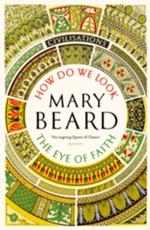What are civilisations? At the heart of this big question is how people have depicted the human and divine, from prehistory to the present day. Britain’s most famous classicist Mary Beard asks: how have we portrayed ourselves in some of the world’s earliest art? Why have these images sometimes been so contentious? In time for the 55th anniversary airing of Kenneth Clark’s Civilisation, Beard explores gigantic stone heads carved by the Olmec in Central America, the statues and pottery of the ancient Greeks, and the first emperor of China’s terracotta army. And she explains how one ancient representation of the human body still influences (or distorts) how people in the West see their own culture, and that of others. From Angkor Wat to the Ravenna mosaics and exquisite calligraphy of Islamic mosques, all religions have wrestled with idolatry and iconoclasm. Throughout this story, Beard is concerned not only with the artists who made art, but with those who have used, viewed, or interpreted it and asked how to look with The Eye of Faith.

How do we look / the eye of faith
ISBN: 9781805222460
Format: Paperback
Publisher: Profile Trade (UBD)
Origin: GB
Release Date: September, 2024


